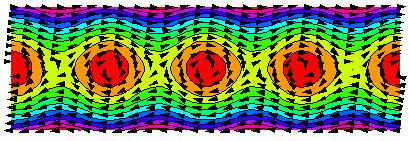

 |
 |
Galen T. Pickett
PH3-103
562-985-4934
gpickett@csulb.edu
Office Hours: Tuesday/Thursday 11:30-12:30 in PH3-123 (Physics/Geology Computer Lab).
Goal: After successfully completing this course, you should be familiar with
You will be able toThe Mathematica programming environment Elementary numerical analysis, root finding, calculus, matrix manipulation Symbolic calculation and procedural programming Special functions and complex analysis Basic simulation methods
The course meets twice weekly. We shall begin with a short lecture each day, and then will resort to the lab where most of our learning and work will occur.Create simulations of physical interest, random walks, diffusion, fractal geometry. Implement basic dynamics and statics calculations, method of finite elements. Learn other programming languages, and apply them to physical problems you encounter in your course work, laboratory, etc. Work in my research lab.
Grading of the course:
APART FROM THESE POINT VALUES, YOUR MAXIMUM POSSIBLE GRADE WILL BE A IF YOU FAIL TO TURN IN A PROBLEM SET.Homework 40%: Problem sets are due biweekly on Thursdays, there are 4 of them. Midterm Project 25%: Everyone in the course will be working on the same midterm project, and while you are encouraged to work together to find a mutual solution, your written report should be uniquely yours, and demonstrate your understanding of your work, etc. Final Project 25%: Everyone in the course will complete an individually assigned project, (mutual consent) with a written report. Final Presentation 10%: The last week of the course, everyone in will deliver a 10 minute presentation of their final project, results, and analysis. This presentation will be delivered with overhead transparencies. There will be a short question-and-answer period as a part of the presentations.
Topics to be covered and approximate schedule of the course:
Tools available: Mathematica V3.0 in Physics/Geology Computer Lab. Later in the semester we will be upgrading to version 4.0, available in the physics Unix lab. Spreadsheets and word processing. C compilers and unix tools in Physics unix cluster (available to students who wish to program in Fortran, C, java, perl, you name it, we've got it.Week 1: 9/1-9/5 Introduction to the nuts and bolts. Where is the lab, what is Mathematica, what commands are useful, plotting and analysis, numerical and symbolic math, introduction to programming. Problem set #1 is available. Week 2: 9/8-9/12 FindRoot, NIntegrate, D. Problem set #1 "Basic mathematica manipulations for mechanics," due on Thursday. Pick up Problem set #2. Week 3: 9/15-9/19 Our first simulation: a random walker, Brownian motion, polymers. Week 4: 9/22-9/26 Problem set #2 "Numerical method implementation," due. Problem set #3 available. Week 5: 9/29-10/3 Numerical integration of Newton's laws. Euler's method. Runge-Kutta method. Projectile motion with drag. Week 6: 10/6-10/10 Introduction to Project #1: The Black Death. Rules of the game, dimensionless quantities, and the division of parameter space. Problem set #3 "Numerical solutions to Newton's equations," due. Week 7: 10/13-10/17 Open lab for Project #1, debugging, testing, data collection. Week 8: 10/20-10/24 Open lab for Project #1. Week 9: 10/27-10/31 The diffusion (heat, Schroedinger) equation on a lattice. Discrete gradient, Laplacian operator, boundary conditions. Coupled equations for The Black Death. Project #1 Report Due: The Black Death. Week 10: 11/3-11/7 Final Project Proposal due. Week 11: 11/10-11/14 Problem set #4 "Numerical solution of generalized heat equation," due. Week 12: 11/17-11/21 Open lab, final project. Week 13: 11/24-11/28 Open lab, final project Thanksgiving Break on Thursday. Week 14: 12/1-12/5 Final Report Due, 12/4. Week 15: 12/5 - 12/7 Oral Reports 12/9. Open Lab 12/11.